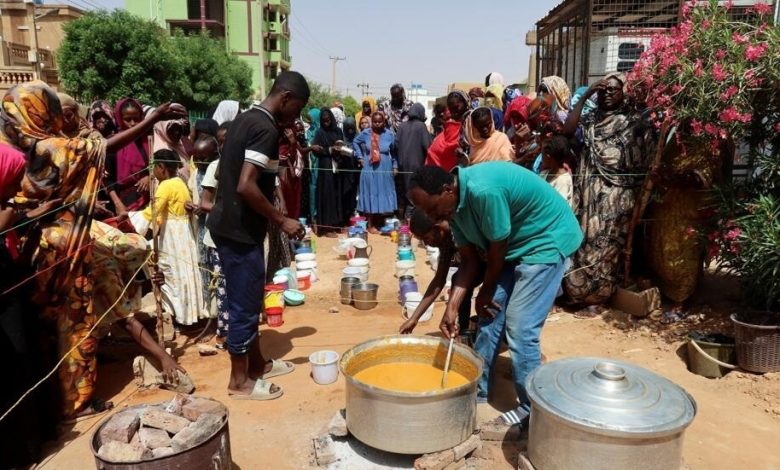Omdurman’s Soup Kitchens: Easing the Effects of War

Sudan Events – Agencies
The fighting that broke out on the morning of April 15, 2023, in Sudan’s capital, Khartoum, has had severe negative effects on citizens’ lives from day one. These effects have worsened over time, making daily survival increasingly difficult.
Residents trapped in the three cities of the capital have suffered the most, facing severe food shortages and an inability to purchase essentials. Many were already living in poverty, while others struggled due to the collapse of banking services, which made accessing cash nearly impossible.
In response, charitable efforts emerged to provide food to affected residents. Numerous takkayas (community kitchens) were established to offer meals, either through the personal contributions of financially able individuals or through donations used to purchase and prepare food for those in need.
Khartoum is now home to dozens of active takkayas, covering a large portion of the city’s neighborhoods. Nearly every area has at least one, with beneficiaries lining up with their containers during breakfast and lunch hours.
Lentils, rice, and beans form the core of the meals provided, ensuring sustainability despite rising food costs. Meat, whether red or white, is a rare addition due to its high price. Nonetheless, those in need rely on these meals to survive as they await stability to return to the country.
Not all beneficiaries come from impoverished backgrounds. Many professionals and workers now turn to these takkayas due to the collapse of businesses, the loss of income, and the lack of functioning markets, bakeries, and grocery stores—especially in areas under heavy fire from the Rapid Support Forces (RSF).
One of these takkayas, called Al-Ghaith, is located in Thawra neighborhood, Block 21, in Omdurman’s Karari locality.
A Community Effort
Speaking to Al Jazeera Net, Bayader Al-Sir, the founder and primary financier of Al-Ghaith, explained how the initiative has expanded through donations from both local and international benefactors. She noted that the kitchen provides daily lunch meals to approximately 400 families and three shelters housing displaced people from unsafe areas.
However, Al-Ghaith sometimes halts operations for days due to a lack of funds for essential supplies. Bayader expressed deep sadness whenever this happens, knowing how many people depend on the kitchen for their meals.
Long before lunchtime, beneficiaries gather in an open field next to Bayader’s home, carefully placing their containers in a single line to avoid chaos and maintain order. Volunteers assist in organizing the crowd to ensure a smooth and peaceful distribution.
A group of local women and youth, including a doctor and an operating room assistant, help Bayader run the kitchen. Women handle cooking from the early morning, while young men purchase ingredients, maintain order, and assist with meal distribution.
Several beneficiaries shared their gratitude with Al Jazeera Net, with some saying they rely entirely on Al-Ghaith for their daily sustenance.
(Reported by Al Jazeera Net)



